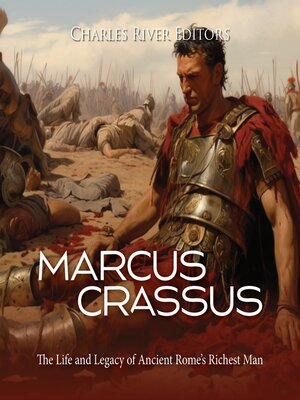Marcus Crassus
audiobook (Unabridged) ∣ The Life and Legacy of Ancient Rome's Richest Man
By Charles River Editors

Sign up to save your library
With an OverDrive account, you can save your favorite libraries for at-a-glance information about availability. Find out more about OverDrive accounts.
Find this title in Libby, the library reading app by OverDrive.



Search for a digital library with this title
Title found at these libraries:
| Loading... |
The reasons for Spartacus's enduring appeal are obvious, but his uprising has overshadowed the fact that his was actually the third such uprising against the Roman Republic in a short span. Preceding this, the First and Second Servile Wars had already demonstrated that revolts against Rome and the whole institution of slavery could gain momentum, and these earlier uprisings provided a blueprint for the larger attempt by Spartacus to win freedom.
At the same time, it's often overlooked how the revolt affected Rome, and how the leader who put it down propelled his career and played an outsized role in Roman politics ahead of the civil war between Pompey and Caesar. Marcus Licinius Crassus is most remembered today for being the richest Roman in history, and arguably the richest man in world history, but that came about in part because he played a key role in the revolutionary events that took place in Rome throughout the 1st century BCE, including the dictatorship of Sulla, the Third Servile War, the First Triumvirate, and the Parthian Wars. Crassus was the son of Publius Licinius Crassus, who was consul in 97 BCE, and while very little is known of Crassus' early life, his career as a military figure began in earnest when he escaped from Rome in 87 BCE to Spain to avoid Lucius Cornelius Cinna, who, along with Gaius Marius, led the opposition against Sulla.
Thanks to his rise in the military and politics, Crassus's renown and riches heavily influenced his contemporaries. In the wake of the Third Servile War, Crassus' patronage helped position Julius Caesar to be appointed governor of Hispania Ulterior. In order to maintain political office, which made him immune from prosecution for his debts, he left for modern day Spain before his praetorship expired.






